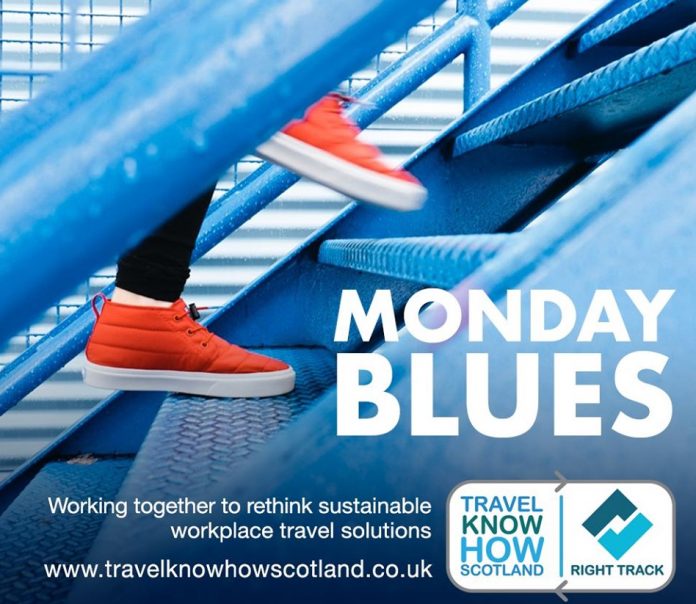It’s a recurring experience that few working people escape. It starts on Sunday night when we become progressively more anxious as our weekend comes to a close. Psychologists call this feeling “anticipatory anxiety.”
Believe it or not, studies have shown that 81% of the working population are affected to various degrees. Nearly two-thirds reported a restless night’s sleep on Sunday nights, which they attributed to job-related anxiety. Coming off a relaxing, and or, fun-filled weekend and making the regular transition to our workday on Monday can be mentally and physically discouraging. The clammy dread we feel as the weekend winds down and we’re left with a severe case of the “Monday blues” — that down, even depressed, lethargic sensation at the start of a new work week.
Anticipatory Anxiety is a classic stress symptom. Worrying over something can trigger our flight-or-fight reflex, which floods the body with adrenaline. Our pulse rate and blood pressure rise, breathing becomes rapid, and the extra oxygen in the brain increases alertness. Blood sugars and other nutrients fill the bloodstream, supplying a boost of energy. If our brain continues to think this way, cue work worries, our body keeps systems on a high, triggering the release of cortisol, the body’s main stress hormone. A continuous flood of cortisol keeps us revved up and we end up being tired and stressed-out come Monday morning.
Work worries may be foremost in our thoughts when we think of stress but the fact is that just getting to and from work is a major stress factor for most people. Many of us travel to and from work in cars, the frustration of sitting in heavy traffic on a daily basis is bad enough on any day of the week, but Monday’s always seem worse. In the UK, winter months account for most car accidents for a number of reasons. Dark mornings and early evenings are compounded by bad weather conditions and the rush to work. All of this leads to stress which can increasingly develop into mental health issues.
It’s not all doom and gloom. There are many ways we can avoid stress and potential mental health problems. We can counter that stress by doing things that boost endorphins; the feel-good neurotransmitters in the brain that act as natural painkillers and mood boosters.
An excellent choice is exercise. Breaking a sweat has been shown to reduce anxiety and depression, boost mood and enhance sleep, all good ways to combat Sunday stress. And then there is the Monday morning. Virtually any form of exercise can increase our fitness level while decreasing our stress levels. Instead of taking the car to work, we can mix things up by walking to the bus stop or train station or even walking to a lift-share pick-up point. If our workplace is not too far from home, we could walk or even cycle. Let’s face it, we use cars as a convenience, not always as a necessity. It comes down to good planning of our work commute that includes some physical exercise. Active travel planning provides many benefits. According to many recent independent studies, just five minutes of aerobic exercise like cycling, or a ten-minute walk can considerably reduce anxiety and boost the size of the hippocampus, the brain area involved in verbal memory and learning. Regular exercise like this provides many cumulative health benefits, both physical and mental that makes us feel better and work more effectively and efficiently. But the benefits don’t end there. Our active travel participation has an effect on the environment by helping to avoid road congestion and reducing climate warming CO2 emissions.
Travelknowhow Scotland is a leading source of Active and Sustainable workplace travel planning information and insights. Our goal is to help employer businesses and organisations in Scotland change commuting behaviours and develop sustainable employee travel plans that are good for business, good for the wellbeing of employees and good for the planet. Get in-touch and let us show you how we can all make a difference.
Funded and supported by Scotland’s 7 Regional Transport Partnerships and Transport Scotland, Travelknowhow Scotland supports and contributes directly to the Scottish government’s 2045 net-zero target. Encouraging more active and sustainable travel within Scottish workplaces will play a crucial role in the reduction of emissions and with the introduction of measures such as the Low Emission Zones and proposals to introduce a workplace parking levy, Travelknowhow Scotland is on hand to offer Scottish employers practical advice and guidance to allow them to support and encouraging their employees to start changing their travel behaviour.
New Travel Behaviour App
RIGHT TRACK is a new Mobile phone travel behaviour application which aims to support and encourage employees to embrace more sustainable and active travel choices in their daily commute to work. RIGHT TRACK focuses on presenting viable travel alternatives based on the users current commuting behaviours and mobility profile. Behaviour change is stimulated by presenting personalised benefits, targeted content articles, commuting challenges, workplace improvements and social commuting.
To register or find out more about the RIGHT TRACK App visit www.travelknowhowscotland.co.uk or contact info@travelknohwowscotland.co.uk
You can also find us on Facebook and LinkedIn for up to date news from Travelknowhow Scotland www.facebook.com/tkhscotland/ and
www.linkedin.com/company/travel-know-how-scotland/






